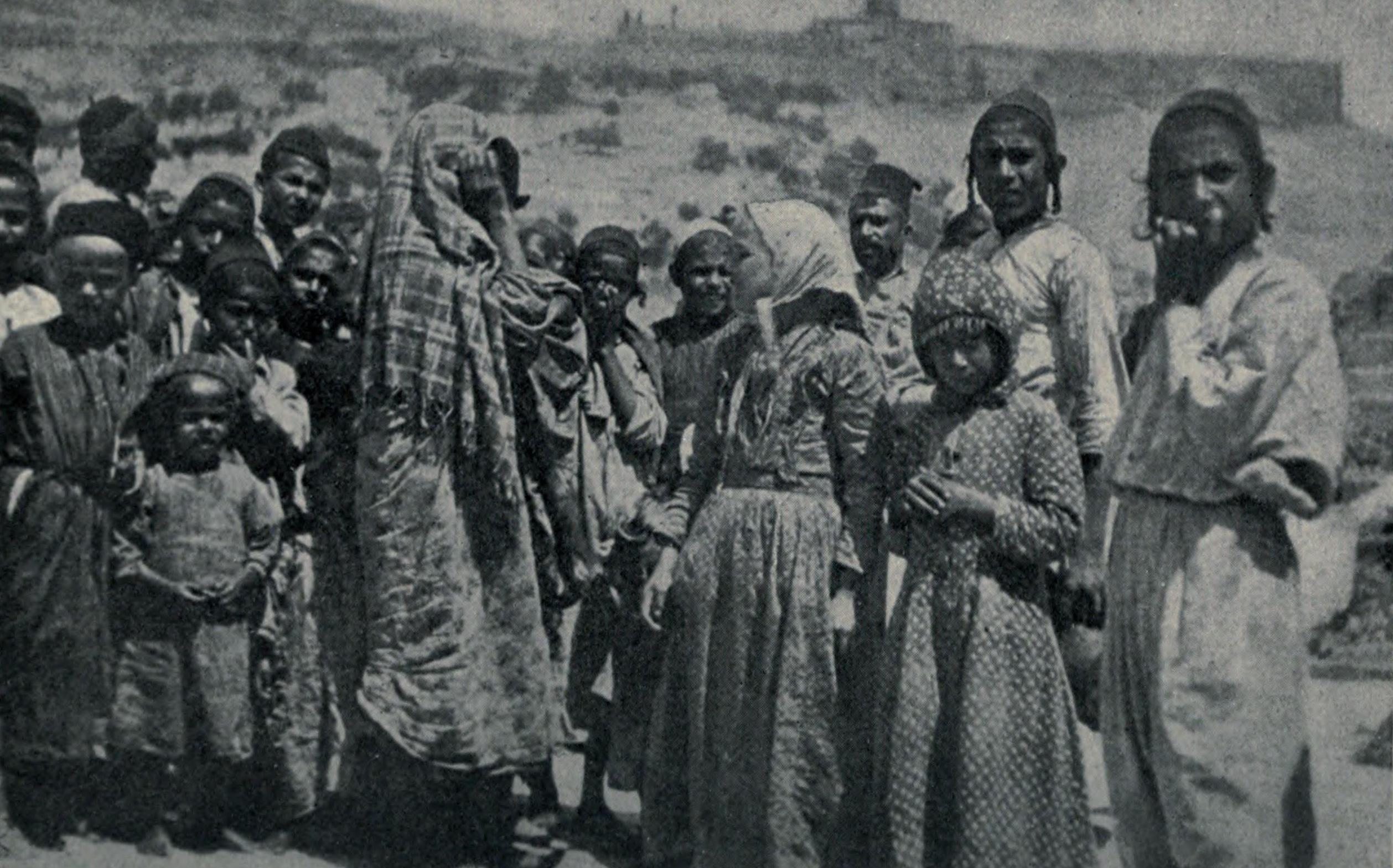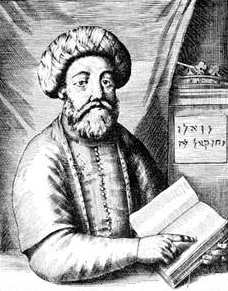|
Jacob Ben Nathanael
Jacob ben Nathanael ibn al-Fayyumi () was a ''rosh yeshiva'' of the Yemenite Jews in the second half of the 12th century CE, son of the illustrious Rabbi, Nathanel al-Fayyumi. All that is known of him is that at the suggestion of Solomon ha-Kohen, a pupil of Maimonides, he wrote to the latter asking his advice in regard to a Jewish Messiah claimants, pseudo-Messiah who was leading the Jews of southern Arabia astray. From a passage in Maimonides' "Letter to the Wise Men of the Congregation of Marseilles", the date of Jacob's letter is fixed as 1172 (Halub, in his ed. of ''Iggeret Teman,'' p. 51, note). In answer, Maimonides sent his ''Iggeret Teman'' or, as it is also called, ''Petah Tikva.'' Abraham Harkavy supposes that Jacob had knowledge of Saadia Gaon's ''Sefer ha-Galui'' (''Studien und Mittheil.'' v.154; comp. ''Monatsschrift,'' xliv.508). Jacob's father was known as a philosophical writer (see ''Jew. Encyc.'' v.354). References * 12th-century Yemenite rabbis {{MEa ... [...More Info...] [...Related Items...] OR: [Wikipedia] [Google] [Baidu] |
Rosh Yeshiva
Rosh yeshiva ( he, ראש ישיבה, pl. he, ראשי ישיבה, '; Anglicized pl. ''rosh yeshivas'') is the title given to the dean of a yeshiva, a Jewish educational institution that focuses on the study of traditional religious texts, primarily the Talmud and the Torah, and ''halakha'' (Jewish law). The general role of the rosh yeshiva is to oversee the Talmudic studies and practical matters. The rosh yeshiva will often give the highest ''shiur'' (class) and is also the one to decide whether to grant permission for students to undertake classes for rabbinical ordination, known as ''semicha''. The term is a compound of the Hebrew words ''rosh'' ("head") and ''yeshiva'' (a school of religious Jewish education). The rosh yeshiva is required to have a comprehensive knowledge of the Talmud and the ability to analyse and present new perspectives, called ''chidushim'' (novellae) verbally and often in print. In some institutions, such as YU's Rabbi Isaac Elchanan Theological Semin ... [...More Info...] [...Related Items...] OR: [Wikipedia] [Google] [Baidu] |
Yemenite Jews
Yemenite Jews or Yemeni Jews or Teimanim (from ''Yehudei Teman''; ar, اليهود اليمنيون) are those Jews who live, or once lived, in Yemen, and their descendants maintaining their customs. Between June 1949 and September 1950, the overwhelming majority of Yemen's Jewish population immigrated to Israel in Operation Magic Carpet. After several waves of persecution throughout Yemen, the vast majority of Yemenite Jews now live in Israel, while smaller communities live in the United States and elsewhere. Only a handful remain in Yemen. The few remaining Jews experience intense, and at times violent, anti-Semitism on a daily basis. Yemenite Jews have a unique religious tradition that distinguishes them from Ashkenazi Jews, Sephardi Jews, and other Jewish groups. They have been described as "the most Jewish of all Jews" and "the ones who have preserved the Hebrew language the best". Yemenite Jews fall within the "Mizrahi" (eastern) category of Jews, though they differ ... [...More Info...] [...Related Items...] OR: [Wikipedia] [Google] [Baidu] |
Nathanel Al-Fayyumi
Natan'el al-Fayyumi (also known as Nathanel ben Fayyumi), born about 1090 – died about 1165, of Yemen was the twelfth-century author of ''Bustan al-Uqul'' (Hebrew: ''Gan HaSikhlim''; Garden of the Intellects), a Jewish version of Isma'ilism, Ismaili Shia Islam, Shi'i doctrines, and a complete imitation of Bahya ibn Paquda's book, ''Duties of the Heart'', and which Al-Fayyumi composed, in his own words, to counter some of the basic principles and tenets of Judaism expressed by Ibn Paquda, writing in his 3rd chapter that God's unity is far greater than that described by Ibn Paquda. Like the Ismailis, Natan'el argued that God sent different prophets to the various nations of the world, containing legislations suited to the particular temperament of each individual nation. Each people should remain loyal to its own religion, because the universal teaching was adapted to the specific conditions and experiences of each community. Not all Jewish depictions of Muhammad were negative. Jews ... [...More Info...] [...Related Items...] OR: [Wikipedia] [Google] [Baidu] |
Solomon Ha-Kohen
Solomon (; , ),, ; ar, سُلَيْمَان, ', , ; el, Σολομών, ; la, Salomon also called Jedidiah ( Hebrew: , Modern Hebrew, Modern: , Tiberian Hebrew, Tiberian: ''Yăḏīḏăyāh'', "beloved of Yahweh, Yah"), was a monarch of ancient Israel and the son and successor of David, according to the Hebrew Bible and the Old Testament. He is described as having been the penultimate ruler of an amalgamated Kingdom of Israel (united monarchy), Israel and Judah. The hypothesized dates of Solomon's reign are 970–931 BCE. After his death, his son and successor Rehoboam would adopt harsh policy towards the northern tribes, eventually leading to the splitting of the Israelites between the Kingdom of Israel (Samaria), Kingdom of Israel in the north and the Kingdom of Judah in the south. Following the split, his Patrilineality#In the Bible, patrilineal descendants ruled over Judah alone. The Bible says Solomon built the Solomon's Temple, First Temple in Jerusalem, dedicating ... [...More Info...] [...Related Items...] OR: [Wikipedia] [Google] [Baidu] |
Maimonides
Musa ibn Maimon (1138–1204), commonly known as Maimonides (); la, Moses Maimonides and also referred to by the acronym Rambam ( he, רמב״ם), was a Sephardic Jewish philosopher who became one of the most prolific and influential Torah scholars of the Middle Ages. In his time, he was also a preeminent astronomer and physician, serving as the personal physician of Saladin. Born in Córdoba, Almoravid Empire (present-day Spain), on Passover eve, 1138 (or 1135), he worked as a rabbi, physician and philosopher in Morocco and Egypt. He died in Egypt on 12 December 1204, when his body was taken to the lower Galilee and buried in Tiberias. During his lifetime, most Jews greeted Maimonides' writings on Jewish law and ethics with acclaim and gratitude, even as far away as Iraq and Yemen. Yet, while Maimonides rose to become the revered head of the Jewish community in Egypt, his writings also had vociferous critics, particularly in Spain. Nonetheless, he was posthumously ackno ... [...More Info...] [...Related Items...] OR: [Wikipedia] [Google] [Baidu] |
Jewish Messiah Claimants
The messiah in Judaism means "anointed one" and included Jewish priests, prophets and kings such as David and Cyrus the Great. Later, especially after the failure of the Hasmonean Kingdom (37 BCE) and the Jewish–Roman wars (66–135 CE), the figure of the Jewish messiah was one who would deliver the Jews from oppression and usher in an Olam HaBa ("world to come") or Messianic Age. Some people were looking forward to a military leader who would defeat the Seleucid or Roman enemies and establish an independent Jewish kingdom. Others, like the author of the Psalms of Solomon, stated that the messiah was a charismatic teacher who would give the correct interpretation of Mosaic law, restore Israel, and judge mankind. This is a list of notable people who have been said to be the messiah ben David, either by themselves or by their followers. The list is divided into categories, which are sorted according to date of birth (where known). 1st century *Jesus of Nazareth (ca. 4 BC–30 ... [...More Info...] [...Related Items...] OR: [Wikipedia] [Google] [Baidu] |
Iggeret Teman
The Epistle to Yemen or Yemen Letter ( he, אגרת תימן, translit=Iggeret Teiman, ar, الرسالة اليمنية) was an important communication written by Maimonides and sent to the Yemenite Jews. The epistle was written in 1173/4. The need for the epistle arose because of religious persecution and heresy in 12th century Yemen, marked by a pseudo-Messiah that had arisen there. The man who claimed to be Israel's Messiah began preaching a syncretistic religion that combined Judaism and Islam, and claimed that the Bible had foretold his coming as a prophet. One of the leaders of the Jewish community in Yemen, Rabbi Ya'akov, the son of the illustrious Rabbi Netanel Fayyumi, had addressed his concerns in a letter which he had sent to Maimonides, who was in Egypt. Rabbi Ya'akov had conjectured that perhaps the influences of the stars were responsible for these occurrences, to which conjectures Maimonides replied that Rabbi Ya'akov ought to expunge from his heart the vain co ... [...More Info...] [...Related Items...] OR: [Wikipedia] [Google] [Baidu] |
Abraham Harkavy
Abraham (Albert) Harkavy (, russian: Авраа́м Я́ковлевич Гарка́ви, translit=Avraám Yákovlevich Garkávi; 17 October 1835 – 15 March 1919) was a Russian historian and orientalist. Biography Harkavy was born in 1835 to a Lithuanian Jewish family in Navahrudak, Minsk Governorate (in present-day Belarus). He studied initially in the Volozhin yeshiva and graduated from the Teacher's Institute in Vilna. In 1863, he enrolled at the University of St Petersburg, where he studied Oriental Languages and graduated with the degree of master of history in 1868. He continued his studies in Berlin and Paris, receiving a doctorate in history in 1872. Harkavy become involved in Jewish communal life in Russia, and was extremely active in various capacities. From 1864 Harkavy was secretary of the Society for the Promotion of Culture Among the Jews of Russia, and from 1873 he was one of the directors of the Jewish community of St. Petersburg. In 1876 he was appointed h ... [...More Info...] [...Related Items...] OR: [Wikipedia] [Google] [Baidu] |
Saadia Gaon
Saʻadiah ben Yosef Gaon ( ar, سعيد بن يوسف الفيومي ''Saʻīd bin Yūsuf al-Fayyūmi''; he, סַעֲדְיָה בֶּן יוֹסֵף אַלְפַיּוּמִי גָּאוֹן ''Saʿăḏyāh ben Yōsēf al-Fayyūmī Gāʾōn''; alternative English names: Rabbeinu Sa'adiah Gaon ("our Rabbi heSaadia Gaon"), often abbreviated RSG (RaSaG); Saadia b. Joseph; Saadia ben Joseph; Saadia ben Joseph of Faym; or Saadia ben Joseph Al-Fayyumi; 882/892 – 942) was a prominent rabbi, gaon, Jewish philosopher, and exegete who was active in the Abbasid Caliphate. Saadia is the first important rabbinic figure to write extensively in Judeo-Arabic. Known for his works on Hebrew linguistics, Halakha, and Jewish philosophy, he was a practitioner of the philosophical school known as the "Jewish Kalam". In this capacity, his philosophical work '' The Book of Beliefs and Opinions'' represents the first systematic attempt to integrate Jewish theology with components of ancient Greek ... [...More Info...] [...Related Items...] OR: [Wikipedia] [Google] [Baidu] |



